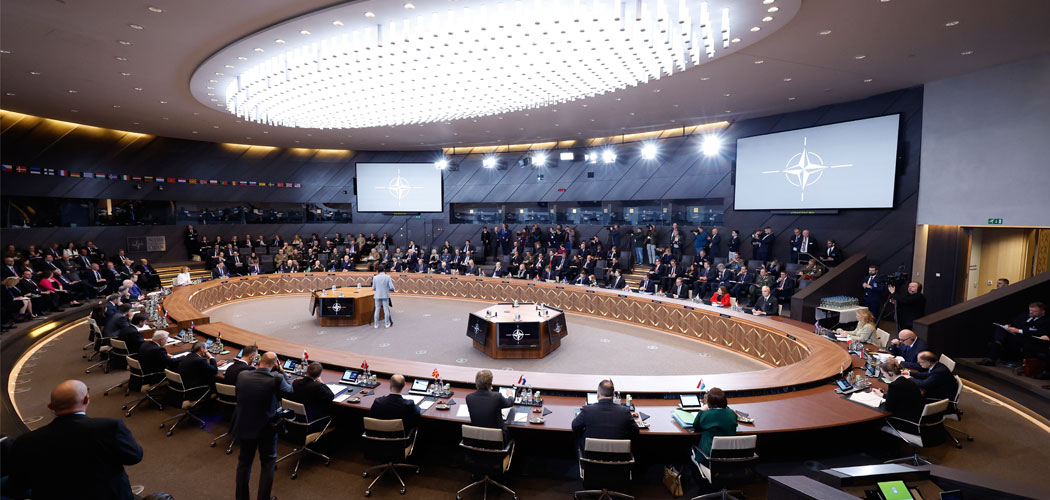
Moscow, Feb. 15: By saying Ukraine’s NATO membership is “impractical” and the return of Russian-occupied territories to Kyiv is “illusionary,” the Trump administration is giving its blessing to key items on President Vladimir Putin’s wish list — even before a potential settlement of the conflict.
Rarely was a policy change between Moscow and Washington so swift and drastic than President Donald Trump’s phone call with Putin, abruptly ending a three-year, U.S.-led effort to isolate the Russian leader over Ukraine.
And the fighting in Ukraine wasn’t the only issue the two leaders discussed in Wednesday’s call. They talked about the Middle East settlement, the role of the dollar, global energy markets and even artificial intelligence.
The broad agenda was exactly what Putin has long wanted – Russia and the U.S. sitting down to talk about global issues while the rest of the world stood by.
It’s unclear how the prospective Ukraine peace talks could evolve, but the call already has marked a watershed, immediately breaking the ice between Moscow and Washington.
Putin sent troops into Ukraine on Feb. 24, 2022, amid Kyiv’s bid to join NATO that he described as a “red line” for Moscow. He had cast the alliance’s eastward expansion as a major threat to Russia and sought NATO’s guarantees that it would never offer membership to Ukraine.
Putin expected a quick victory, but the steadfast Ukrainian resistance and a flow of Western weapons to Kyiv quickly thwarted Kremlin hopes. The fighting has produced heavy casualties on both sides, becoming Europe’s largest military conflict since World War II.
After suffering early setbacks, Russia gradually regained the initiative in combat, unleashing a series of offensives across the 1,000-kilometer (600-mile) front line in slow but steady gains throughout 2024. It controls about a fifth of Ukrainian territory, including the Crimean Peninsula, taken in 2014
Putin has demanded that Ukraine withdraw its troops from the four regions that Russia has seized but never fully controlled, renounce its bid to join NATO, and protect the rights of Russian speakers. He and his lieutenants repeated all of that in recent statements, reaffirming Moscow’s maximalist approach.
Ukrainian President Volodymyr Zelenskyy has rejected Moscow’s demands, but the grim battlefield situation and the latest statements from Trump set the stage for talks in which Kyiv could potentially be forced into painful compromises.
Trump described his call with Putin as “lengthy and highly productive” and thanked Putin “for his time and effort,” emphasizing their shared desire to halt the fighting without saying a word that it was Russia which sent troops into Ukraine.
He said he later spoke to Zelenskyy, but he remained noncommittal about whether Ukraine would be an equal participant in the peace talks — an apparent signal that Kyiv could be presented with a deal negotiated behind its back in a dramatic shift from the Biden administration’s policy of “nothing about Ukraine without Ukraine.”(AP)
Comments